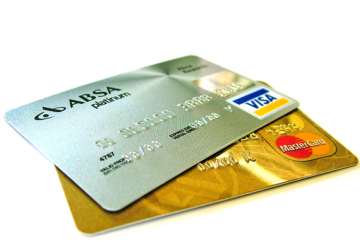New Delhi: President Pranab Mukherjee Thursday dedicated to the nation indigenous card payment network called RuPay taking on the global players like Visa and MasterCard.
The new payment network developed by the National Payments Corporation of India (NPCI), a not-for-profit company envisioned by the Reserve Bank of India (RBI) and created by the banking industry, covers all the automated teller machines (ATMs) and most of the retail and e-commerce platforms.
“RuPay” is the coinage of two terms Rupee and Payment.
“Dedication of RuPay to the nation is symbolic of the maturity of the payment system development in India,” Mukherjee said after formally launching the card at a function at Rashtrapati Bhavan.
He pointed out that with the launch of new system, India has now ranked among the “few countries in the world to have such a network built domestically to meet the card-based payment system needs of the country.”
RuPay cards are accepted at all ATMs, more than 90 percent of ‘Point of Sale' (POS) terminals and more than 10,000 e-commerce merchants across the country.
“It is also heartening to note that a few banks have started issuing cards which are accepted internationally through the network of an international partner,” Mukherjee said.
RuPay Scheme provides flexibility to card issuing banks to issue special purpose cards like Kisan Cards, Milk Procurement Cards, Grain Procurement Cards and Financial Inclusion Cards.
A variant of the card called “Kisan Card is now being issued by all the Public Sector banks in addition to the mainstream debit card which has been issued by 43 banks”.
More than 150 cooperative banks and the Regional Rural Banks (RRBs) in the country have also issued RuPay ATM cards. The total number of cards issued as on date is 17 Million and is growing at a rate of about three million per month.
Mukherjee said card-based payment transactions in India is set to grow rapidly in the coming years as the economy matures and internet penetration increases.
“An indigenous system like RuPay will, hopefully, not only reduce the dependence on cash and cheque modes of settlement but will also make it easier to offer products based on specific requirements of diverse user sets within the country,” the president said.
Latest Business News
